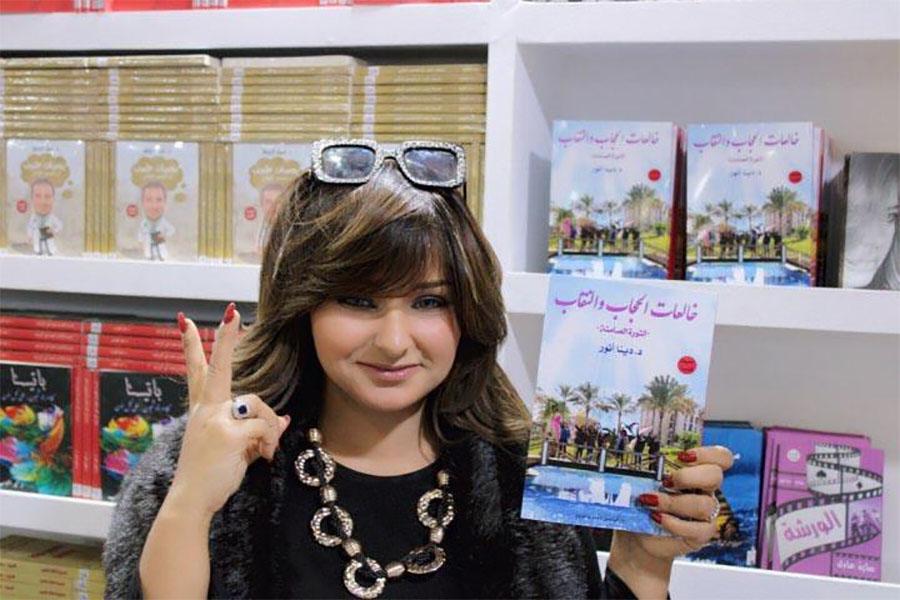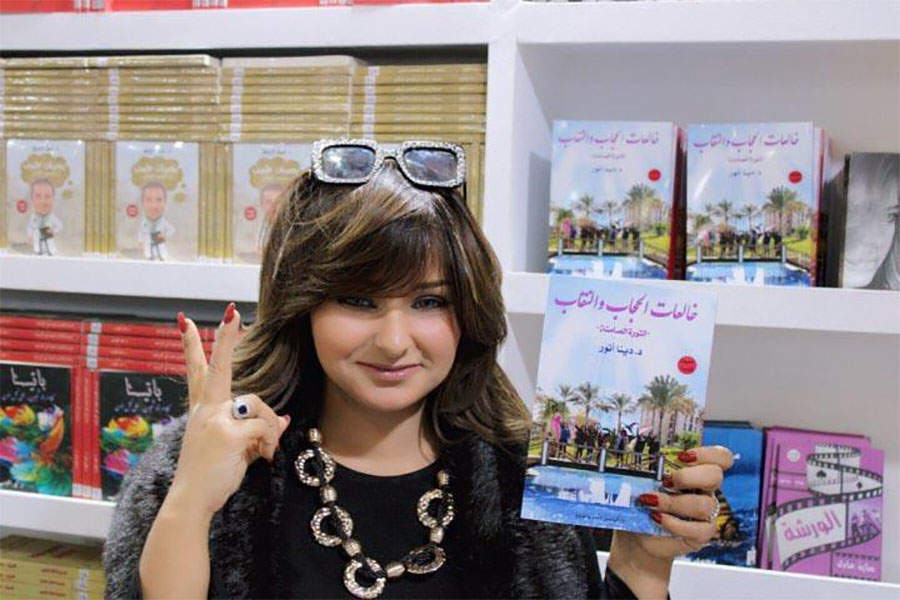Egyptian writer’s life turns into ordeal after penning book against hijab
CAIRO — A woman writer’s life is being threatened after the publication of her book about one of the most controversial issues in Islam, the hijab.
Dena Anwer, a pharmacist, has stuck out as a model of social nonconformity, especially regarding what women should wear in public and women’s rights. She has written a book documenting the experiences of women who took off the hijab after being forced to wear it by their family.
Anwer’s Those Taking Off the Hijab: The Silent Revolution sold well at the recent Cairo International Book Fair. All available copies of the book were sold and Anwer made some of her personal copies available to eager readers.
“This was surprising to me,” Anwer said. “Women, even those wearing the hijab, were very keen to buy the book.”
However, it has touched a nerve inside extremist circles and Anwer has received death threats.
She said she is afraid to leave her home, prevents her children from going out and, before driving her car, checks whether an explosive device had been planted in it.
“My utmost fear now is that the extremists can physically liquidate me after I was morally liquidated by society and the media,” Anwer said.
Anwer is not the first free thinker to fall afoul of extremists. Despite official efforts to keep the lid on extremism, extremist thought seems to be deeply rooted in the mind of many Egyptians.
Egypt, which has been home to some of the world’s most notorious Islamist organisations, including the Muslim Brotherhood, saw a rise in the Salafist ideology from 1970s when hundreds of thousands of Egyptians travelled to the Gulf and returned with large amounts of money and Wahhabist ideas.
Among their demands was that their wives, sisters and neighbours cover up from head to toe. This happened at a time when a hijab-wearing female was a rarity on the streets of Cairo and Alexandria.
Anwer began a campaign a few months ago calling on women to wear shorts and colourful dresses. She and like-minded thinkers and writers said the hijab is a political statement, not a mere piece of cloth. It is, they say, a symbol of the ideological control Islamist movements impose on Egyptian society.
This is why Anwer is confronting this control and fights her own battle against political Islam. She wears short dresses in public and speaks and writes about women’s rights to wear whatever they want.
Her book is the latest in a series of publications calling for abolishing the grip of Islamist groups on the general public.
“I pay a heavy price for speaking and thinking differently,” Anwer said. “Sorry to say, I am paying it alone.”
Some writers have expressed support and warned against attacks on her.
“What she is facing is intellectual terrorism that must be vigorously confronted,” said Cherif Choubachy, a writer and another campaigner against the hijab. “We should not allow those with backward thoughts to have the upper hand.”
Leftist writer Farida al-Naqash said those threatening to kill Anwer cannot present a convincing counterargument.
“Sorry to say, some people claim to have exclusive access to correct Islam and to be the guardians of the faith, which is totally untrue,” she said.
Anwer’s book faced hostility at the Cairo International Book Fair, despite — or perhaps because of — its popularity. Salafist publishers at the fair asked administrators to ban the book.
The book is mainly about what Anwer described as the injustice women are bearing. She said women who revolt against social norms by taking off the hijab are subjected to violence.
She said she will continue to defend her ideas.
“I, however, feel afraid for my children and my personal safety,” Anwer said. “I may be forced to fall totally silent but I will never change my ideas or apologise for expressing them.”
Amr Emam is a Cairo-based journalist. He has contributed to the New York Times, San Francisco Chronicle and the UN news site IRIN.
Copyright ©2019 The Arab Weekly







